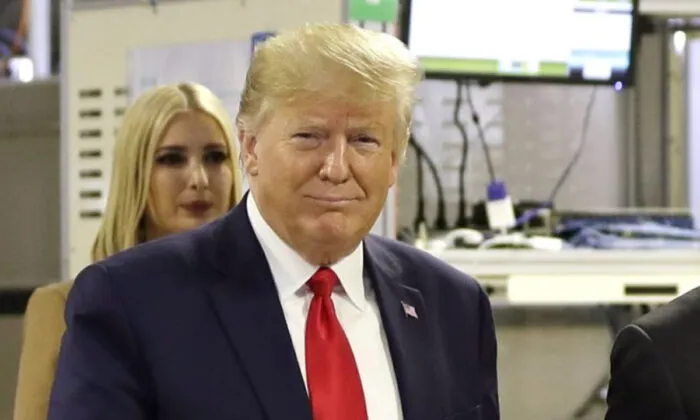
China is “willing to work with the United States to address core concerns” and is trying hard to reach a phase one deal, Ministry of Commerce spokesperson Gao Feng told reporters in a weekly press briefing.
He said that the two sides will keep the communication channels open, adding that the “outside rumors are not accurate.”
Wall Street’s main indexes slipped on Nov. 21 over speculations that the deal might be delayed.
The House and Senate passed the two bills over the past two days supporting the Hong Kong pro-democracy movement—a measure that has angered the Chinese regime. Beijing on Nov. 20 warned that it would take strong countermeasures against what it called “U.S. meddling.”
On Tuesday, Vice President Mike Pence linked the trade agreement with the ongoing Hong Kong demonstrations.
“The president made it clear it’ll be very hard for us to do a deal with China if there’s any violence or if that matter is not treated properly and humanely,” Pence said in an interview with Indianapolis-based radio host Tony Katz.
The phase one trade deal will cover intellectual property protections and China’s purchases of U.S. agricultural products.
Four senators on Nov. 19 also introduced a bipartisan legislation, called Play by the Rules Act, to curb the unfair trade practices from China.
Trump has indicated on multiple occasions that China is in a worse position in the trade negotiations and thus more eager to reach a deal.
“China wants to make a deal. The question is: Do I want to make a deal? Because I like what’s happening right now,” he told reporters at the White House on Wednesday morning before heading to the Apple manufacturing factory in Austin, Texas.
Trump added that the United States is “taking in billions and billions of dollars” from the tariffs.
After the Apple plant tour, Trump again stressed that “China would much rather make a trade deal than I would,” and indicated that he was not ready to sign a deal.
“I don’t think they’re stepping up to the level that I want,” he said.
Trump has made boosting U.S. manufacturing a priority and consistently pushed American companies to keep the jobs at home. Ahead of Trump’s visit, Apple announced plans to expand its Austin campus and employ 5,000 workers.
“We are much bigger than China right now, and we’re going to keep it that way,” Trump said.
The United States currently has duties ranging from 15 percent to 25 percent on approximately $325 billion of Chinese goods, with tariffs of 15 percent on about $156 billion of Chinese products due to kick in on Dec. 15. However, Reuters, citing unnamed U.S. officials, reported earlier this month that the December tariffs may be scrapped as part of the phase one trade deal.




















